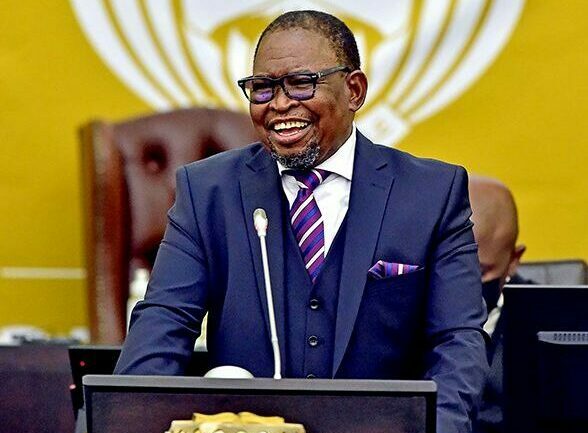While there is hope that things could improve, the truth for the majority of Black South Africans is that despite the country’s high unemployment rate and pervasive poverty, finance minister Enoch Godongwana’s Wednesday budget speech might be another damp squib.
We recall the creation of the Marshall Plan, which came about in the wake of World War II, which ravaged Europe from 1939 to 1945 and caused the largest loss of human life and infrastructure.
The economy of South Africa is highly limited, as it has been for a long time. The economy is in a pitiful state of extreme weakness today, having been so for most of the 30 years of our new democracy, which came to us at a high cost following decades of liberation struggle against the tyranny of apartheid and colonialism.
How do we revert to prosperous ways following so many missteps, shortcomings, and instances of poor governance?
We anticipate that Godongwana’s budget speech will, at least in part, lay out the strategy and the roadmap, assisting the nation in presenting a brand-new, excellent economic plan to start the process of economic recovery. What should be done now is a persistent question in practically every sphere of life, particularly in the poorer regions like the townships and villages, where several plans our leaders floated in parliament have not
materialised.
What does the Marshall Plan teach us?
War is brutal. Infrastructure is destroyed, including factories, residences, schools, hospitals, highways and bridges. It kills innocent people as well.
When faced with that reality following World War II, more than 70 years ago, US officials created the European Recovery Programme to revive Europe’s industrial zones and restore damaged factories. For that purpose, $15-billion was injected into the economy in 1948. This helped to revive trade and economic activity that had been severely damaged by the war.
We also know that the US had political goals when it launched the Marshall Plan in Europe, among them being to strengthen ties with the continent’s nations and shield them from “the claws and jaws of communism”.
However, it’s important to emphasise that the project was launched to revive the economy, which had been severely damaged by the war. As a result, there was widespread unemployment, which raised the poverty line.
Similar challenges confront this nation. We have engaged in a type of war. Corruption and ineptitude have ruined our economy. The point is illustrated by the crises at our parastatals.
Transnet is broken; foreign governments do not trust our ports, our rail stock has been destroyed, making it seem as though we do not have a government with troops and police.
Eskom has long been dependent on government bailouts. Loadshedding strangles business and stifles economic expansion and growth.
Tinkering with the economy will not help. Godongwana must be decisive for the sake of the country’s best interests. We desperately need efforts to support economic recovery. We pin our hopes on him, and a budget speech to inspire hope.



